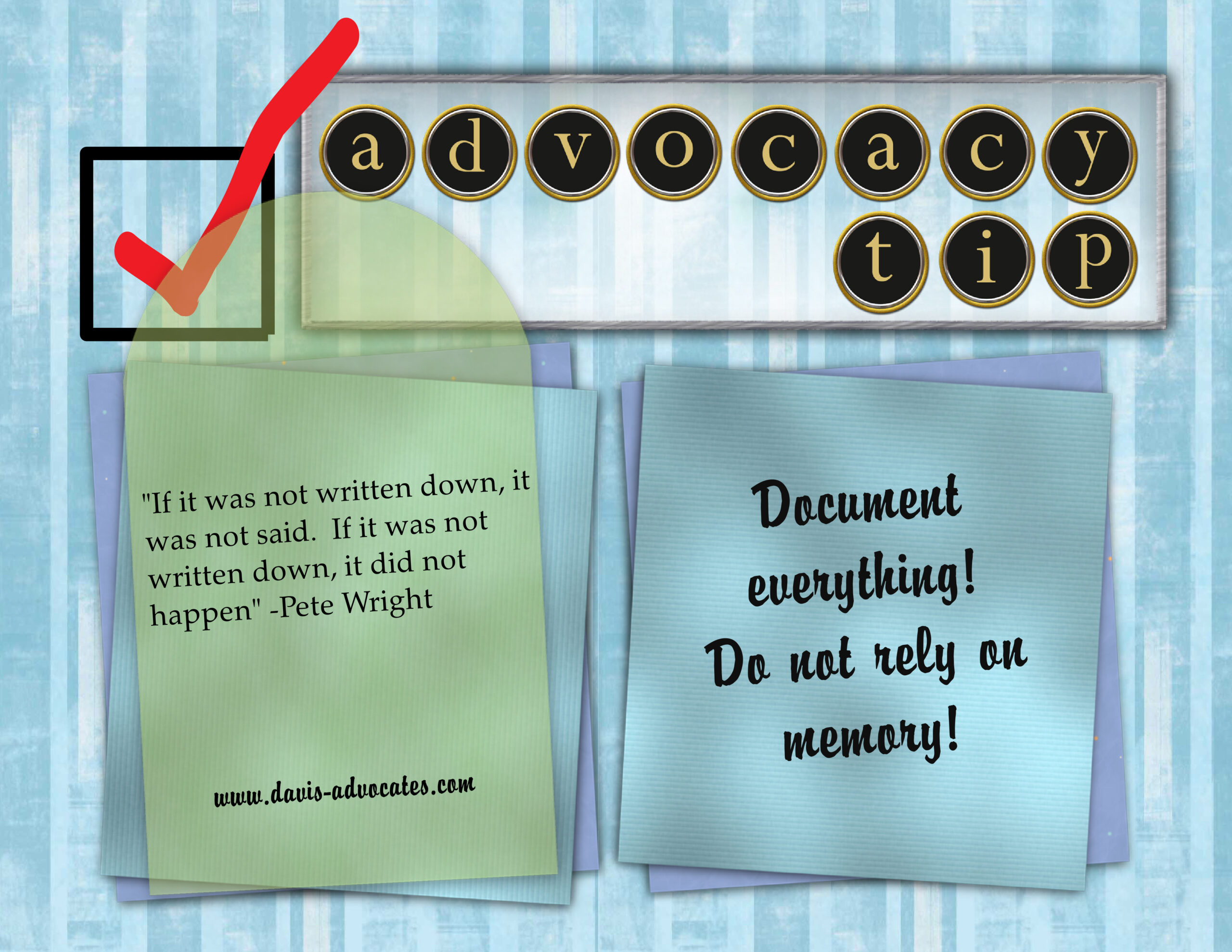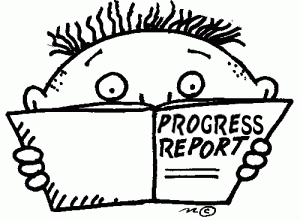Record Keeping:
When dealing with governmental agencies such as the IRS or Social Security, we all know the importance of keeping detailed records. We also know the importance of keeping records such as auto, home and life insurance policies. Did you know that it is important to keep detailed records of your communication with your child’s school? Good documentation is key in the event a disagreement arises or you end up in due process. It serves to support your memory of the conversation. It also creates a paper trail in the event you end up in due process.
“If it was not written down, it was not said. If it was not written down, it did not happen.”-Pete Wright
Four main record keeping activities that you should engage in on a regular basis are:
- Logging communication with your child’s school;
- Sending confirmation e-mails;
- Completing a problem report worksheet; and
- Requesting data and work samples to monitor IEP goal progress.
Today’s post will cover logging communication with your child’s school. The others will be covered in upcoming posts.
Communication Log:
Keeping a log of communication with your child’s school is a great way of documenting conversations that took place. In the event a disagreement arises with your child’s school you have written documentation of what was said, by whom and when it was said. When emotions are high our recollection of past conversations can be unreliable. Add to that the passage of time, it is even harder to recall exactly what was said. Often it become a case of your word against the school employee and many times the outcome is not in favor of the parent.
Written documentation supports your position especially when you can produce a detailed communication log. It is very important that you create a habit of filling out the communication log as soon as the event or communication took place. Doing it immediately keeps your log is in chronological order. If you fill out your log infrequently or out of chronological order it may weaken your position. If you fill out your log on a regular basis and in chronological order it can serve to strengthen your position.
Ways to Track Communication:
You can keep track of communication using a log, journal or calendar. I personally prefer a communication log. No matter the way you choose to document your communications make sure you include the following information:
- Type of Communication;
- Date and time of the conversation;
- Who you spoke with and their position;
- What was discussed including any requests made by you;
- What the person you were speaking with response to your request was; and
- Notes.
Types of Communication to Log:
- Telephone calls;
- Attempts to return missed calls;
- Meetings;
- Messages;
- Notes;
- Letters; and
- Conversations in the hall or pick up line that are important to your child’s education or IEP.
Your log should document all communication between you and staff at your child’s school.
Remember: It is very important that you keep emotions and opinions out of your record of the conversation. State the facts only. In the event you end up in due process you may have to produce a copy of these logs.



